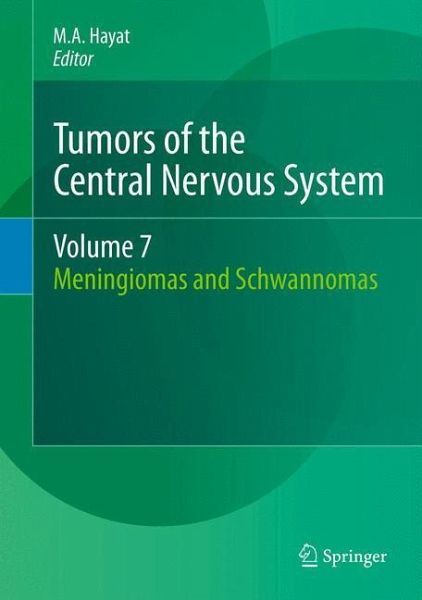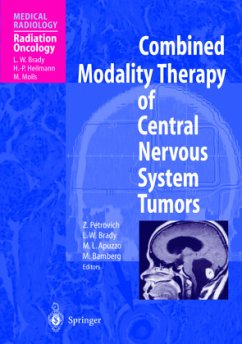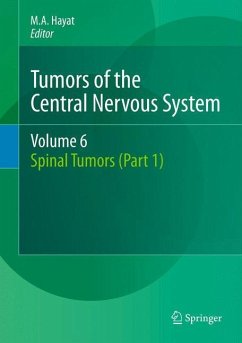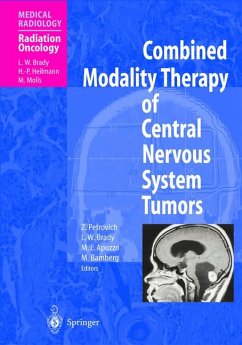
Tumors of the Central Nervous System, Volume 7
Meningiomas and Schwannomas
Herausgegeben: Hayat, M. A.

PAYBACK Punkte
77 °P sammeln!
Various aspects, including diagnosis, therapy, and prognosis, of two brain tumors (meningioma and schwannoma), of brain tumors are discussed in this volume. Insights on the understanding of molecular pathways involved in brain tumor biology are explained. For example, the role of E-cadherin gene instability, carbonic anhydrase 11, urokinase plasminogen activator, and Wnt signaling is discussed in detail. Such information will lead to the development of effective anticancer drugs. The role of molecular genetics and epigenetic mechanisms in schwannomas is explained. Also, is explained the role o...
Various aspects, including diagnosis, therapy, and prognosis, of two brain tumors (meningioma and schwannoma), of brain tumors are discussed in this volume. Insights on the understanding of molecular pathways involved in brain tumor biology are explained. For example, the role of E-cadherin gene instability, carbonic anhydrase 11, urokinase plasminogen activator, and Wnt signaling is discussed in detail. Such information will lead to the development of effective anticancer drugs. The role of molecular genetics and epigenetic mechanisms in schwannomas is explained. Also, is explained the role of cyclin D1 in vestibular schwannoma. The determination of subtypes of meningiomas using perfusion magnetic resonance imaging is explained. Diagnosis of incidentally discovered meningioma and cystic papillary meningioma is also included. Diagnosis of facial nerve schwannoma, vestibular schwannoma, and intermediate nerve schwannoma is explained. Treatments for atypical meningioma, oncocytic meningioma, intracranial meningioma, and cavernous are presented. Therapeutic methods such as neurosurgery, Gamma knife radiosurgery, and adjuvant radiation for this cancer are included. Large number of other treatments, including radiosurgery, retrosigmoidal craniotomy, and immunotherapy, for vestibular schwannoma patients are detailed.














